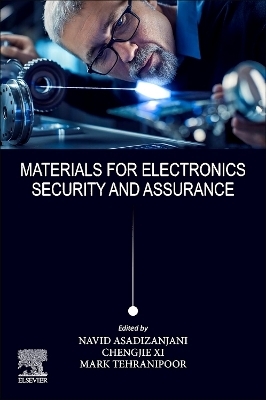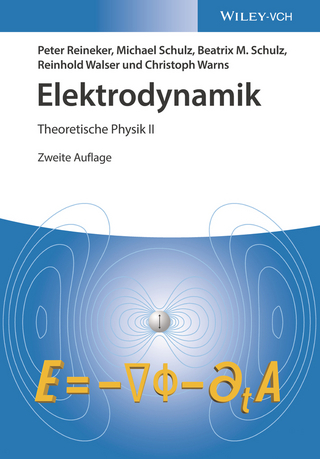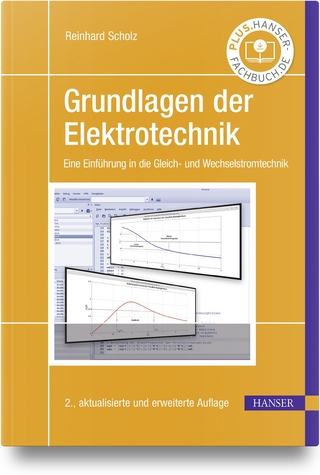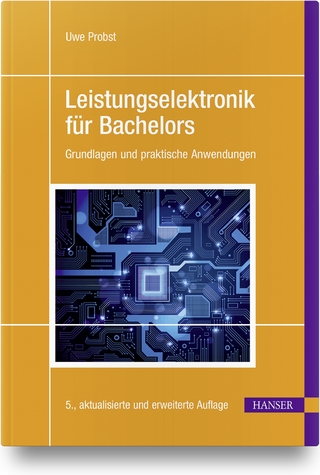
Materials for Electronics Security and Assurance
Elsevier - Health Sciences Division (Verlag)
978-0-443-18542-7 (ISBN)
Navid Asadi is an assistant professor in the department of electrical and computer engineering at university of Florida. His research is mainly focused on physical inspection of electronics from device to system level. He investigates novel techniques for integrated circuits counterfeit detection/prevention, system and chip level reverse engineering, anti-reverse engineering, invasive and semi-invasive physical attacks, integrity analysis, etc. using advanced inspection methods including but not limited to 3D X-ray microscopy, Optical imaging, scanning electron microscopy (SEM), focused ion beams (FIBs), THz imaging, etc. in combination with image processing and machine learning algorithms to make the inspection process intelligent and independent from human. He has received several best paper awards and is the co-founder of the IEEE-PAINE conference. Peter (Chengjie) Xi is currently a Ph.D. student at the University of Florida in the Electrical and Computer Engineering Department. He received an M.S. degree in Materials Science and Engineering from the University of Florida in 2020. His research is focused on developing counterfeit detection and prevention methods for integrated circuit packaging. He investigates various material characterization methods in combination with machine learning algorithms to generate unique fingerprints to make the characterization fast and independent from humans. Mark Tehranipoor is the Intel Charles E. Young Professor in Cybersecurity at the Department of Electrical and Computer Engineering (ECE), University of Florida. Prof. Tehranipoor has published over 300 journal articles and refereed conference papers and has given more than 150 invited talks and keynote addresses since 2006. In addition, he has published six books and ten book chapters. His projects are sponsored by both industry (Semiconductor Research Corporation (SRC), Texas Instruments, Freescale Comcast, Honeywell, LSI, Mentor Graphics, Juniper, R3Logic, Cisco, Qualcomm, MediaTeck, etc.) and the US Government (NSF, ARO, MDA, DOD, AFOSR, DOE, etc.). Prior to joining the University of Florida, Dr. Tehranipoor served as the founding director of the Center for Hardware Assurance, Security, and Engineering (CHASE) and the Comcast Center of Excellence in Security Innovation (CSI) at the University of Connecticut. Prof. Tehranipoor is a Senior Member of the IEEE, Golden Core Member of IEEE Computer Society, and Member of ACM and ACM SIGDA. He is also a member of Connecticut Academy of Science and Engineering (CASE).
1. Materials for Electronics Security: An Overview
2. Electronics counterfeits and materials
3. Terahertz technologies for electronics materials assurance
4. Role of MEMS in Electronics Security
5. Packaging Encapsulant assurance
6. Materials for Track and Trace
7. Naturally Inherent Materials for Electronics assurance
8. Materials for Fingerprinting
9. Emerging materials for Protection mechanisms
| Erscheinungsdatum | 27.01.2024 |
|---|---|
| Verlagsort | Philadelphia |
| Sprache | englisch |
| Maße | 152 x 229 mm |
| Gewicht | 370 g |
| Themenwelt | Naturwissenschaften ► Physik / Astronomie ► Elektrodynamik |
| Technik ► Elektrotechnik / Energietechnik | |
| Technik ► Maschinenbau | |
| ISBN-10 | 0-443-18542-5 / 0443185425 |
| ISBN-13 | 978-0-443-18542-7 / 9780443185427 |
| Zustand | Neuware |
| Haben Sie eine Frage zum Produkt? |
aus dem Bereich


